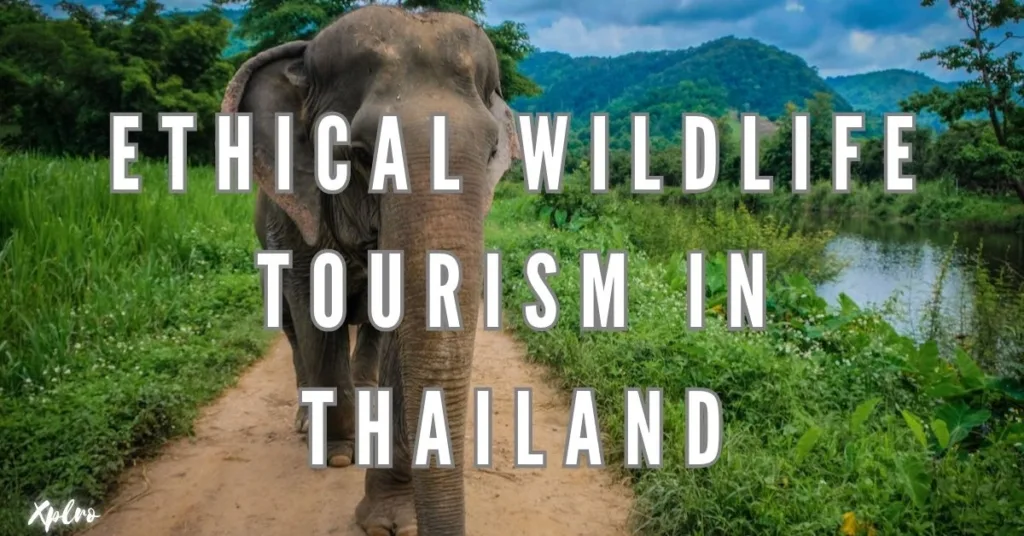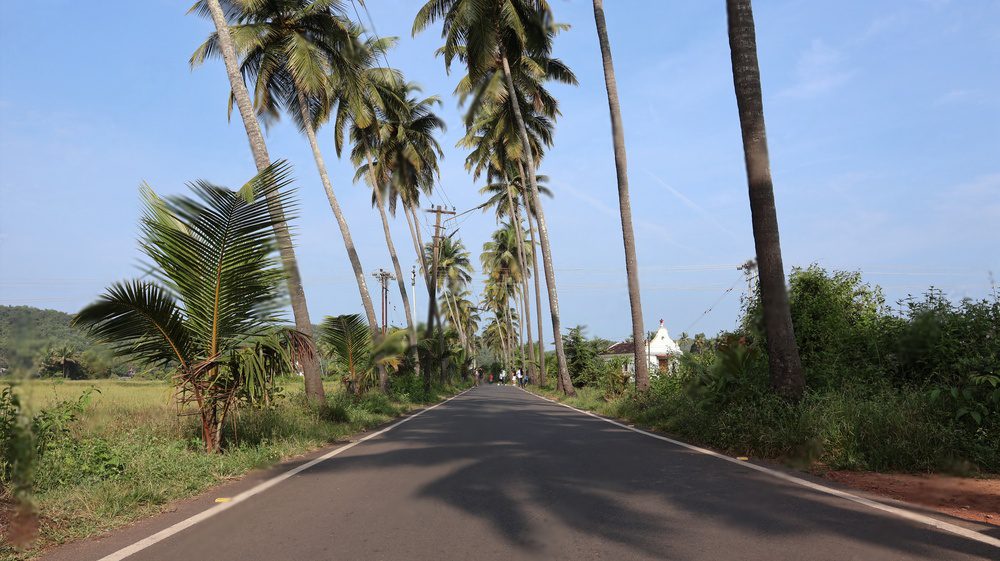Ethical Wildlife Tourism in Thailand, a land of stunning landscapes and rich cultural heritage, is also home to a diverse array of wildlife. As tourism in Thailand continues to grow, it’s crucial to ensure that our interactions with animals are ethical and sustainable. By choosing responsible wildlife tourism experiences, we can help protect these incredible creatures and their habitats.
This guide will delve into the best practices for ethical wildlife tourism in Thailand, highlighting top wildlife sanctuaries and offering tips for responsible travel. Let’s embark on a journey to discover how we can appreciate Thailand’s wildlife while minimizing our impact.
What is Ethical Wildlife Tourism?
Ethical wildlife tourism means visiting animals in a way that protects them and helps conservation efforts. This means choosing places that prioritize the animals’ well-being over entertainment. In Thailand, this could mean visiting sanctuaries that focus on rehabilitating animals instead of using them for shows, or choosing tours that respect the animals’ rights and natural behaviors.
Why Is Ethical Wildlife Tourism Important in Thailand?
Thailand is a stunning country with a rich biodiversity. However, some tourist attractions have unfortunately exploited animals for entertainment. To ensure ethical and sustainable tourism, it’s crucial to choose experiences that prioritize animal welfare and conservation.
Why Ethical Wildlife Tourism Matters:
- Protecting Wildlife Habitats: Supports conservation efforts and helps preserve natural ecosystems.
- Promoting Animal Welfare: Ensures that animals are treated humanely and not exploited for entertainment.
- Supporting Local Communities: Contributes to sustainable tourism that benefits local economies.
- Reducing Demand for Unethical Attractions: Discourages practices like tiger petting and elephant rides.
How to Choose Ethical Wildlife Experiences:
- Research Sanctuaries: Choose sanctuaries that prioritize rehabilitation and conservation over entertainment.
- Avoid Animal Shows: Steer clear of attractions that involve animal performances or tricks.
- Opt for Wildlife-Watching Tours: Participate in guided tours that focus on observing animals in their natural habitats.
- Support Ethical Businesses: Choose accommodations and tour operators that adhere to sustainable practices.
- Educate Yourself: Learn about the threats facing Thailand’s wildlife and how you can make a difference.
Best Ethical Wildlife Sanctuaries in Thailand
Thailand has made significant strides in promoting ethical wildlife tourism. Several sanctuaries are now leading the way, providing safe and ethical environments for animals. These sanctuaries prioritize the well-being of the animals and often focus on rehabilitation and conservation efforts.
Elephant Nature Park (Chiang Mai):


This renowned sanctuary rescues elephants from exploitative situations like riding camps. Here, elephants receive excellent care, and visitors can observe them in a natural setting, learn about their stories, and contribute to their rehabilitation.
Save Elephant Foundation (Chiang Mai):


Founded by Lek Chailert, this organization operates several sanctuaries, including Elephant Nature Park. They rescue elephants from various forms of abuse and provide them with a safe and nurturing environment.
Phuket Elephant Sanctuary (Phuket):
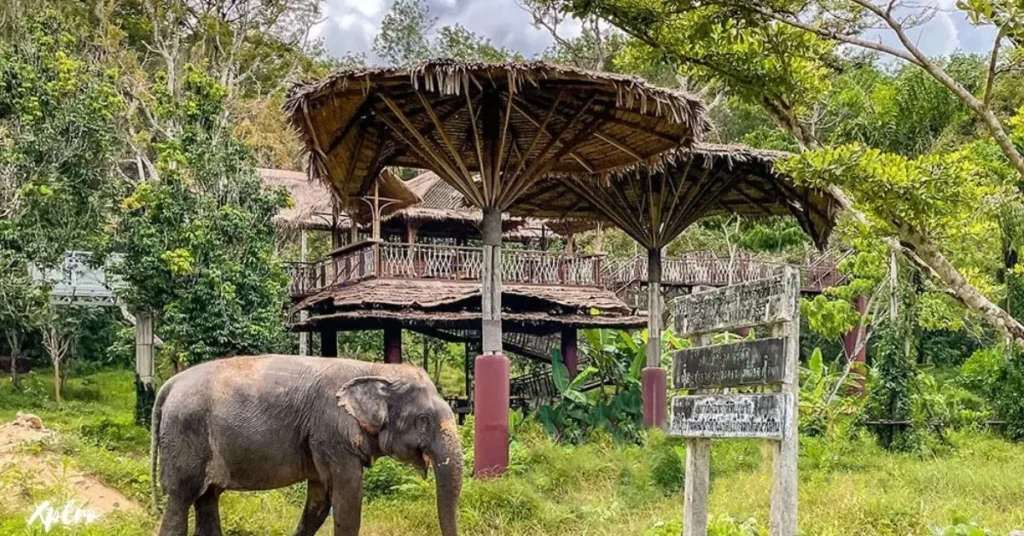

This pioneering sanctuary provides a peaceful haven for elephants rescued from the tourism industry. Visitors can observe elephants roaming freely and learn about their rehabilitation without any forced interactions.
Wildlife Friends Foundation Thailand (Phetchaburi):
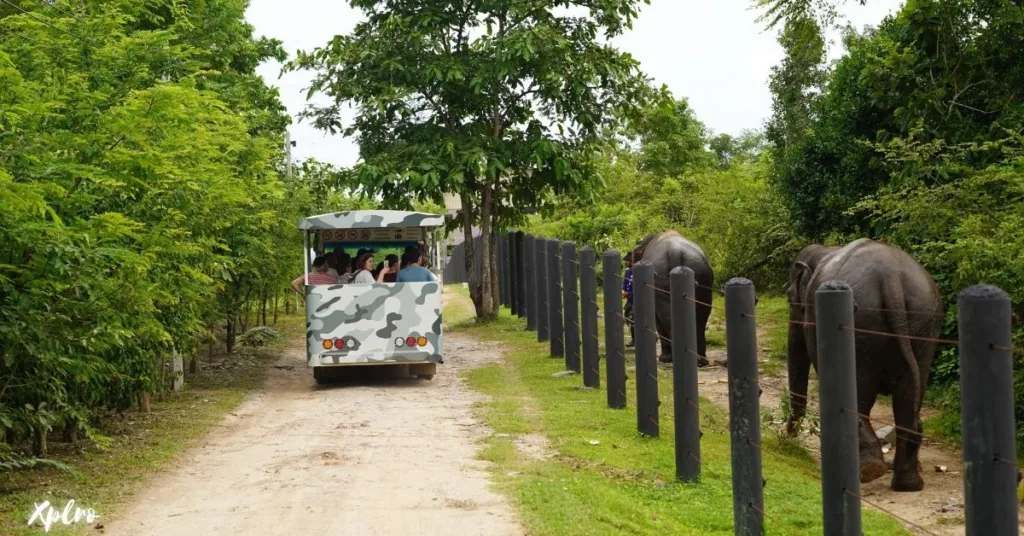

This sanctuary rescues and rehabilitates a wide range of animals, including elephants, bears, and gibbons. Visitors can learn about wildlife conservation and even participate in animal care activities.
Ko Chang Elephant Sanctuary (Ko Chang): Ethical Wildlife Tourism in Thailand
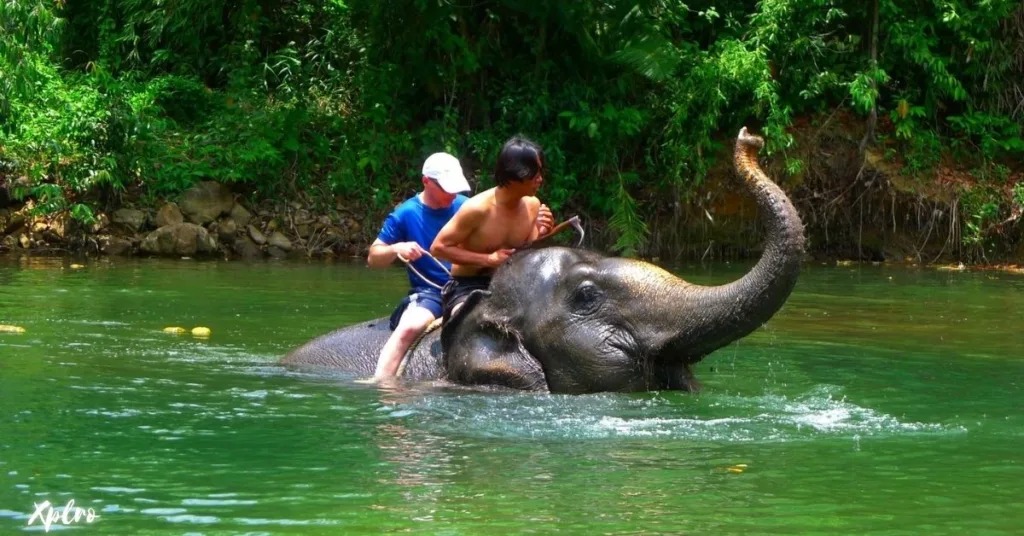

Located on a beautiful island, this sanctuary focuses on rehabilitating elephants rescued from the logging industry. Visitors can help care for the elephants while learning about their needs and the importance of ethical tourism.
Responsible Wildlife Tourism Practices
This is a great start to a list of tips for responsible wildlife tourism in Thailand! Here’s a slightly refined version with a more engaging tone:
Tips for Responsible Wildlife Tourism in Thailand
- Say “No” to Animal Performances: Avoid any attractions that involve animal performances, such as tiger shows, elephant rides, or dolphin shows. These often involve cruel training methods and cause significant harm to the animals.
- Choose Elephant Sanctuaries Wisely: If you’re eager to see elephants, choose ethical sanctuaries that prioritize rehabilitation and conservation. Avoid riding elephants, as this can cause them physical and emotional distress.
- Respect Wildlife Space: When observing wildlife in their natural habitats, always maintain a safe distance. Remember, you are a visitor in their home.
- Support Conservation Efforts: Choose tours and attractions that contribute to local conservation initiatives. Many ethical sanctuaries rely on visitor support to fund their vital work.
- Travel Eco-Consciously: Opt for eco-friendly tours that minimize their environmental impact. This could include small group tours, tours that focus on sustainable practices, and those that partner with local conservation organizations.
Conclusion: How to Be a Responsible Wildlife Tourist in Thailand
Thailand’s amazing wildlife is a huge part of its charm. But seeing these creatures in a responsible way is key! Ethical wildlife tourism ensures animals are treated well and their habitats protected. By supporting sanctuaries and tours that prioritize conservation, you can contribute to a positive impact on the environment.
Here at Xplro.com (your one-stop shop for crafting unforgettable travel experiences!), we believe responsible tourism is essential. As a tourist, it’s your chance to choose experiences that reflect your values. Skip the exploitative activities and opt for ethical sanctuaries and wildlife tours. This ensures animal welfare and supports sustainable practices, all while creating amazing memories.
With Thailand’s rich biodiversity, there’s no shortage of unforgettable experiences waiting for you. Choose ethical wildlife tourism and gain a deeper understanding of the natural world, all while making a positive difference!
Final Tip
Before booking any wildlife encounters in Thailand, always do your research! Look into the organization carefully to make sure they follow ethical standards. Check online reviews and see if they’re accredited by animal welfare organizations. Responsible tourism isn’t just about having a fun trip; it’s about making sure wildlife thrives for years to come.
This version aims for:
- Conciseness: It gets the message across more directly.
- Clarity: It uses simpler language that’s easier to understand.
- Engagement: It uses a more conversational tone.
FAQs
1. What does ethical wildlife tourism mean?
- Ethical wildlife tourism refers to the practice of engaging in wildlife-related activities that prioritize the well-being of animals and their natural habitats. This approach involves supporting conservation initiatives and visiting wildlife sanctuaries that promote animal welfare, while avoiding exploitative practices such as animal performances or rides.
2. Why is ethical wildlife tourism so important in Thailand?
- Ethical wildlife tourism is crucial in Thailand due to the country’s rich biodiversity and the challenges some species face due to exploitation in the tourism industry. By promoting responsible tourism, visitors can help protect endangered animals, contribute to conservation efforts, and ensure that wildlife is treated with respect and care.
3. Is it possible to interact with elephants in an ethical manner in Thailand?
- Yes, you can interact with elephants ethically in Thailand by visiting sanctuaries that focus on the well-being of the elephants. These places, like Elephant Nature Park, allow you to observe elephants in a safe and natural environment without subjecting them to rides or performances. Many sanctuaries offer opportunities to feed or bathe the elephants, supporting their rehabilitation.
4. Are there ethical places to visit tigers in Thailand?
- Yes, ethical tiger sanctuaries, such as the Wildlife Friends Foundation in Phetchaburi, exist in Thailand. These sanctuaries are dedicated to rescuing tigers from cruel tourist attractions and providing them with a safe and peaceful environment. Visitors can learn about conservation efforts and observe tigers living freely in their natural habitats.
- 5. What activities can I participate in at ethical wildlife sanctuaries in Thailand?
- At ethical wildlife sanctuaries in Thailand, visitors can engage in activities that support the animals’ well-being. Common activities include observing rescued animals, participating in feeding programs, and learning about rehabilitation and conservation efforts. These sanctuaries offer educational experiences that allow tourists to understand the importance of ethical wildlife tourism.
6. How can I avoid visiting unethical wildlife attractions in Thailand?
- To avoid unethical wildlife attractions, research your options before booking any tours. Stay away from places that offer elephant rides, photo opportunities with sedated animals, or animal performances. Instead, opt for sanctuaries and tours that focus on animal rescue and rehabilitation, where the animals are free from exploitation.
7. What are the alternatives to elephant rides in Thailand?
- Instead of participating in elephant rides, consider visiting ethical sanctuaries where elephants are allowed to roam freely and engage in natural behaviors. At these sanctuaries, visitors can observe elephants, participate in feeding or bathing activities, and learn about the ethical treatment and care provided to them.
8. How can I support wildlife conservation while traveling in Thailand?
- Supporting wildlife conservation in Thailand can be done by visiting ethical wildlife sanctuaries, donating to wildlife protection organizations, and choosing eco-friendly tours that prioritize sustainability. Additionally, you can share information about ethical wildlife tourism with others to raise awareness and help reduce demand for harmful wildlife attractions.
9. Are there other animals I can ethically observe in Thailand?
- Yes, Thailand is home to a wide variety of wildlife that can be observed ethically. Apart from elephants and tigers, you can visit sanctuaries or national parks to see gibbons, bears, sea turtles, and various species of birds and marine life. Many sanctuaries in Thailand work to rehabilitate these animals and provide them with safe, natural environments.
10. What should I consider when selecting a wildlife tour in Thailand?
- When selecting a wildlife tour, ensure that the tour is focused on conservation and animal welfare. Look for tours that avoid exploiting animals, such as those that do not involve rides or performances. It’s also important to choose tours that provide educational opportunities and work with local conservation efforts to promote sustainable wildlife tourism.
11. Can I contribute to wildlife protection in Thailand beyond visiting sanctuaries?
- Yes, there are several ways you can support wildlife protection beyond visiting sanctuaries. You can donate to conservation organizations, volunteer for wildlife protection programs, and advocate for ethical tourism practices. Additionally, purchasing eco-friendly products and spreading awareness about responsible tourism can also contribute to the cause.
12. How can I educate myself about ethical wildlife tourism in Thailand?
- To educate yourself about ethical wildlife tourism in Thailand, research the sanctuaries and organizations that focus on animal welfare and conservation. Many ethical wildlife sanctuaries also offer educational resources and programs for visitors. Reading reviews, checking accreditations, and supporting accredited organizations will help ensure that your actions are aligned with ethical tourism practices.
